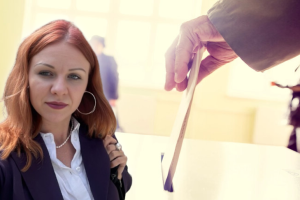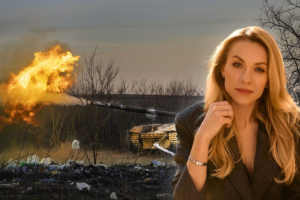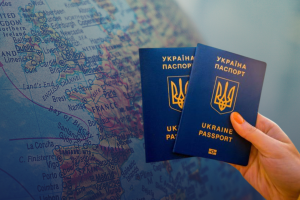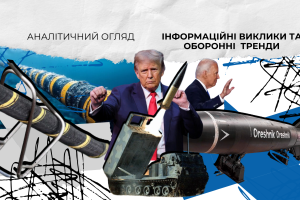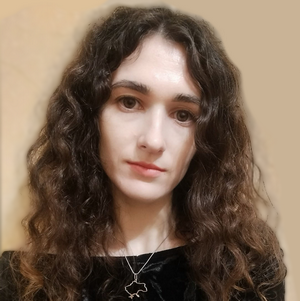
Khrystyna Semeryn
Researcher at the University of Augsburg (Germany) and journalist, Visiting Scholar at Indiana University (US), Center for Eastern Studies (Poland), and Northwestern University (US). Expert for the Ukrainian Book Institute (since 2020) and the Ukrainian Cultural Foundation (2021/22)
Culture is a critical industry that shapes identity and community, a sense of cultural continuity, and serves to highlight the meaning of Ukraine's struggle against the Russian Federation. To this day, the cultural sphere is still permeated by Russian colonialism and the myth of the "great Russian culture." For decades, the Russians have invested enormous resources and promoted propaganda in international arenas. Film critic Daria Badior has reasonably pointed out the responsibility of culture and its importance in modern society, politics, and war: "Culture is an extremely complex entity that can be instrumentalized in such a way that the toxicity of its emissions will exceed all our expectations.
The average consumer of a cultural products may ask: "What's the matter? Culture is not to blame". Indeed, what's wrong with performances of Tchaikovsky in philharmonies around the world, along with the performance of Tchaikovsky by the Kremlin Symphony Orchestra on stage near the Mariupol Drama Theater that was bombed to the ground by the Russian army?
Ukrainian cultural community is challenging Russia's colonialism, crimes, and disinformation at the international level. From the first days of the full-scale invasion, Ukrainian creators have been demanding cultural sanctions against the aggressor country. First of all, they call for a boycott of Russian cultural products and Russian cultural figures, refusal of cultural cooperation with Russia, Russian sponsorship, and personal and institutional sanctions in the cultural sphere.
Demanding cultural sanctions against Russia
On February 27, 2022, the Ministry of Culture and Information Policy addressed the international community with an appeal to cancel Russian-funded projects, ban the activities of Russian cultural centers in partner countries, cancel Russian sponsorship, suspend Russian participation in international cultural and artistic events, suspend the cooperation with Russian creators who support Russian state policy regarding the war against Ukraine.
The State Agency for Art and Artistic Education of Ukraine initiated a demand for cultural sanctions against Russia, which was signed by Ukrainian and international cultural figures. In October 2022, the Minister of Culture and Information Policy of Ukraine addressed the international community again on this issue. In early 2023, President Volodymyr Zelenskyy enacted a decision of the National Security and Defense Council to impose sanctions on Russian and Ukrainian citizens for supporting the Russian war. The list included 119 Russian cultural figures and artists.
Ukrainian institutions are calling international partners to impose sectoral sanctions against Russia. The Ukrainian Institute called for the suspension of Russia's membership in any cultural initiatives and refusal of Russian sponsorship of cultural projects. The Ukrainian Cultural Foundation's (UCF) demands are similar: suspension of cooperation with Russians, membership and participation of the Russian Federation in cultural events and networks, and removal of Russians from advisory and supervisory boards of international cultural projects.
The Lithuanian Council for Culture was among the first to respond to the request not to cooperate with the Russians. The Slovak Film Institute and the Czech Institute of Art and Theater joined the cultural sanctions against Russia. The European Festival Association suspended its cooperation with the Russian Federation.
In addition, the UCF appealed to UNESCO to revoke Russia's membership in the organization, as the terrorist country deliberately destroys the cultural heritage of Ukraine and does not comply with international law.
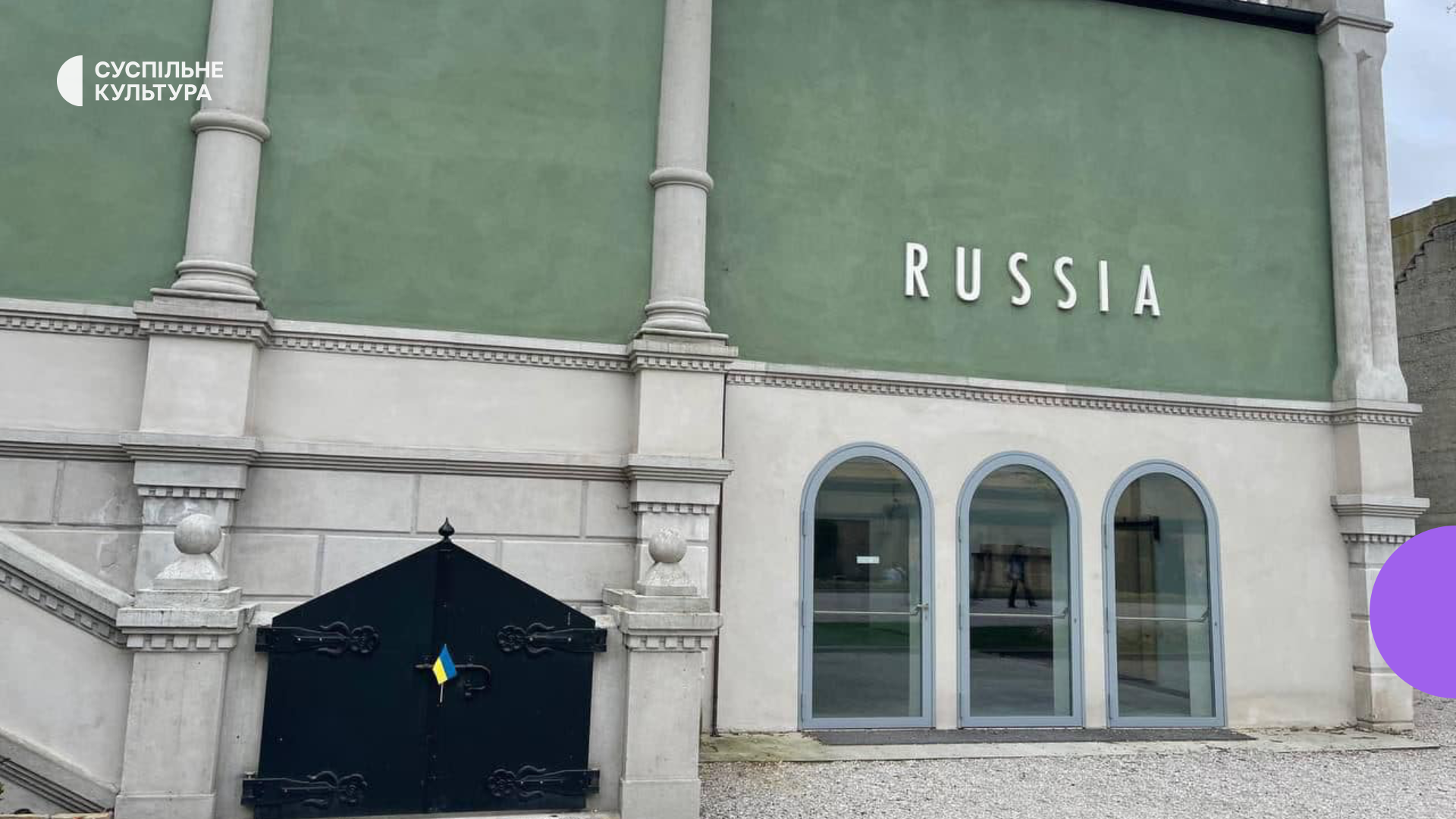
The Russian pavilion, which was empty at the 2022 Venice Biennale. Photo: Suspilne
Ukrainian representatives of the book publishing industry issued an appeal to partner countries to boycott Russian books. The Ukrainian Book Institute, the Book Arsenal, the Ukrainian branch of PEN, the Lviv International BookForum, and Ukrainian publishers, such as the Old Lion Publishing House, joined the appeal. The Ukrainian Association of Publishers and Book Distributors asked the International Publishers Association to support comprehensive sanctions against the aggressor country. The Ukrainian Book Institute and a number of organizations appealed to the Ukrainian section of the International Board on Books for Young People (IBBY) to demand that the International Board on Books for Young People (IBBY International) terminate cooperation with its vice president of the Russian origin and remove Russian sections from the organization.
Upon Ukraine's appeal, twelve cultural institutions in Lithuania, Latvia, and Estonia addressed book fairs in London, Frankfurt, and Bologna with a request to limit cultural ties with Russia. The world's largest Frankfurt Book Fair, the Bologna Children's Book Fair, and others, the International Conference of Book Fair Directors and 14 fairs within it have suspended cooperation with Russia. At the end of March 2022, more than 70 international cultural organizations refused to cooperate with the aggressor country. More about the reaction of the international community can be found in a related article.
In March 2022, the State Committee on Television and Radio Broadcasting of Ukraine, with the assistance of the Ministry of Foreign Affairs of Ukraine, sent letters to the International ISBN Agency, the International ISMN Agency, the International ISSN Center, and the Executive Committee of the UDC Consortium[1] with a request to terminate cooperation with the Russian Federation. The suggestion was to deprive the Russian Federation of membership in these international publication numbering systems, as well as to terminate any sectoral contacts with the Russian Federation.
Ukraine's musical community called on foreign colleagues to suspend all contacts with Russian culture until the end of the war in Ukraine, and to cooperate with Russian figures only if they officially condemn Russian policy toward Ukraine and the war. For example, the Munich Philharmonic and the Paris Philharmonic, the Royal Opera House in London, the Rotterdam Philharmonic Orchestra, and others have stopped cooperation with Russians.
The Ukrainian Film Academy has called for a boycott of Russian cinema in the international context. The statement calls for the suspension of cooperation with Russian film producers, the exclusion of the Russian Federation from Eurimages[2] and the member states of the European Convention on Joint Film Production, the prevention of Russian-made films from participating in international film festivals, and the revocation of FIAPF[3] accreditation for the Moscow International Film Festival. The initiative was supported by the European Film Academy, which excluded Russian films from the European Film Awards in 2022.
Return of Cultural Valuables Appropriated by Russia
An important part of this is the struggle for Ukrainian or Ukrainian-related cultural products appropriated as Russian. This is part of the overall decolonization process. In the world's museums, galleries, theaters, and archives, Ukrainian art is often labeled as Russian. Art historian Olena Semenik has shown a successful example of defending Ukrainian art. She contacts international institutions and informs them why a particular item belongs to Ukrainian rather than Russian culture. She managed to "return the Ukrainian name" to 70 Ukrainian artists from the collection of the American Zimmerli Art Museum, five artists in the catalogs of the Jewish Museum in New York, including Abram Manevich, the founder of the Kyiv Academy of Art (although the general description indicates that he was born in Russia).
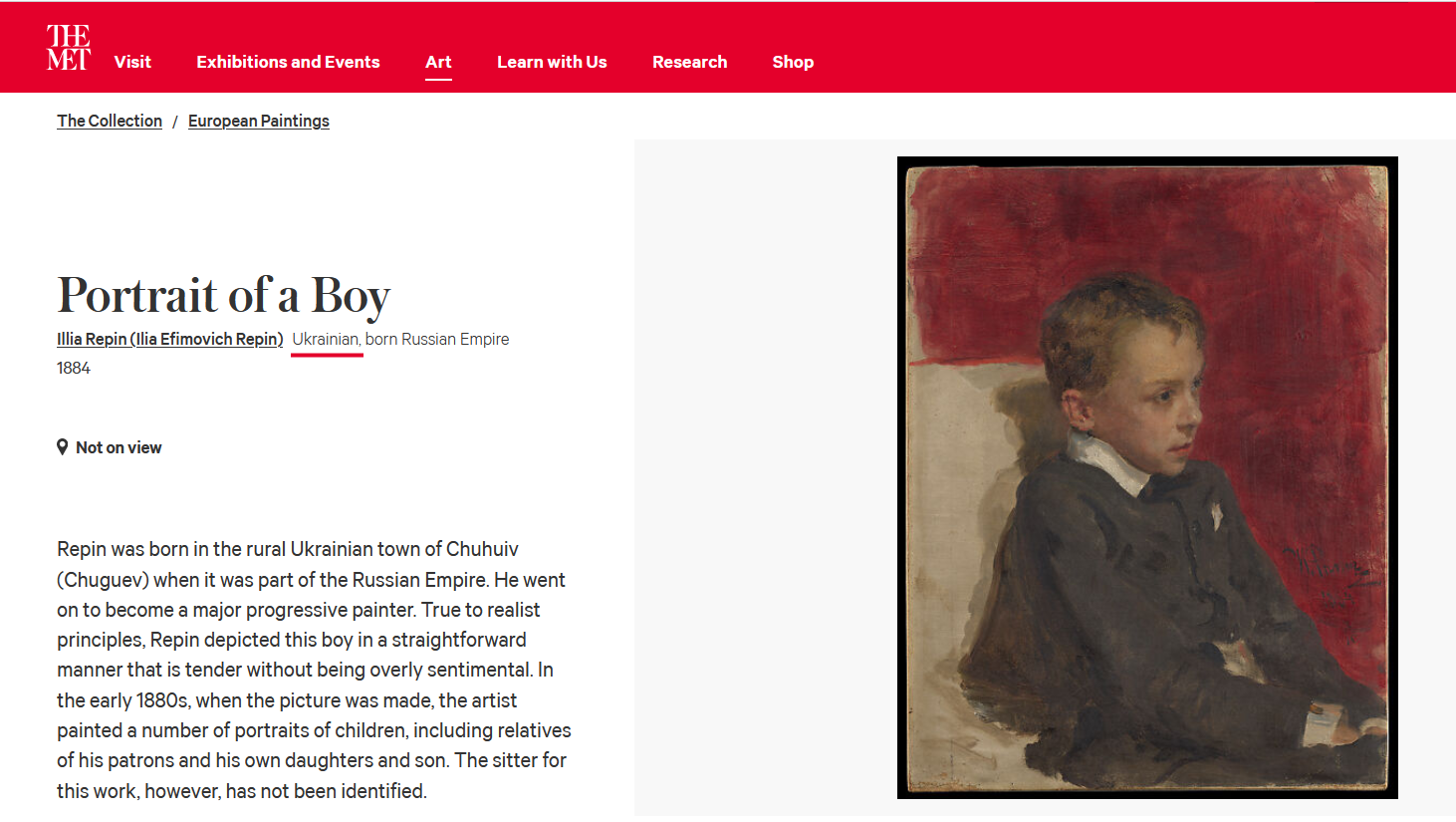
Revised biographical information on artist Ilya Repin on the Metropolitan Museum of Art website. Photo: Metmuseum website
The Metropolitan Museum of Art, a leading US museum, has changed the biographical information of three artists from Ukraine: Ivan Aivazovsky, Arkhip Kuindzhi and Ilya Repin. Now they are listed as Ukrainian, not Russian artists.
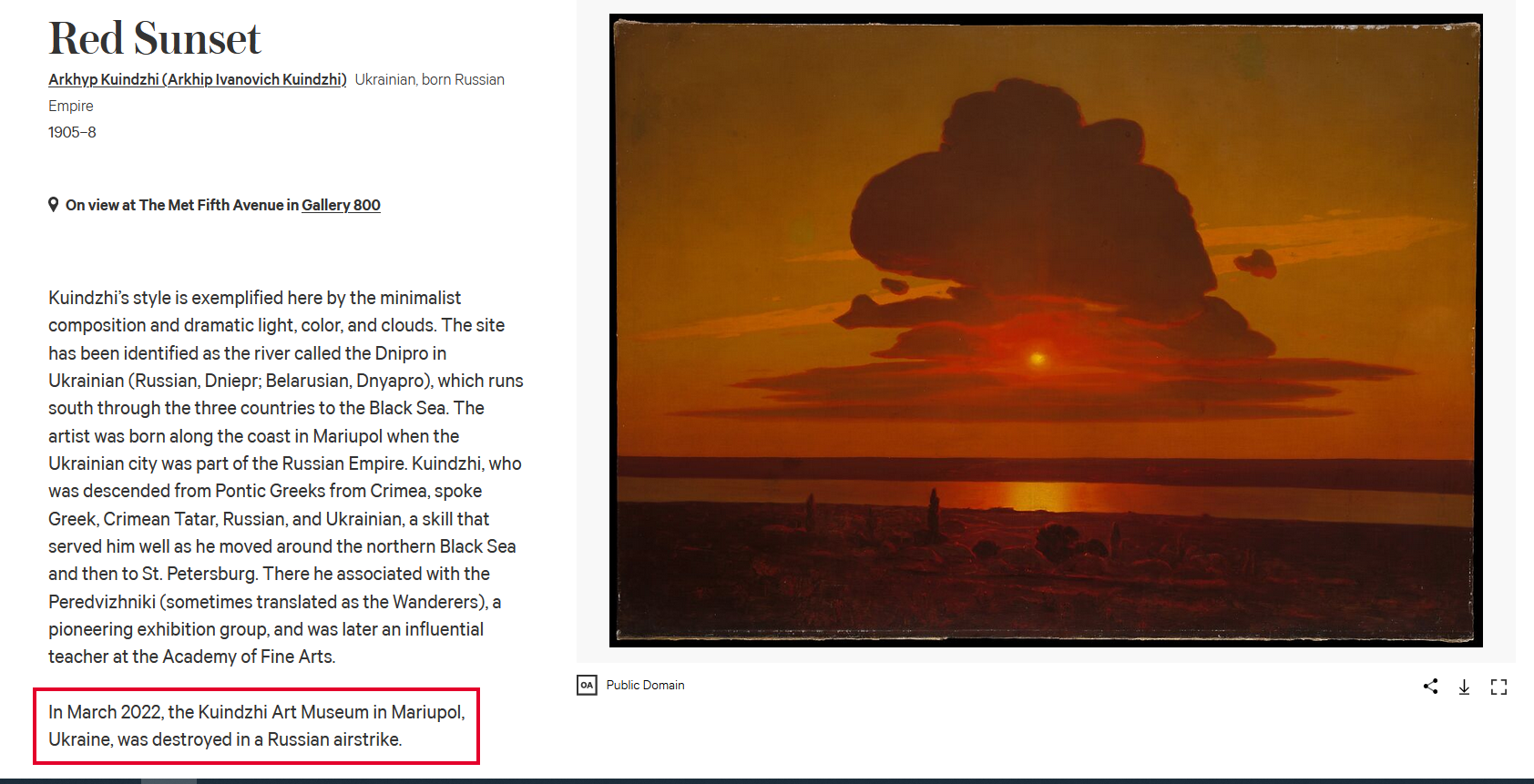
The Metropolitan Museum of Art on its website added information about Archip Kuindzhi that in March 2022, the Kuindzhi Art Museum in Mariupol was destroyed by a Russian air strike. Photo: Metmuseum website
Thanks to the efforts of the director of the Odesa Art Museum, Oleksandra Kovalchuk, the Metropolitan Museum of Art has added information on its website that Russians destroyed the Kuindzhi Museum in Mariupol. According to media reports, the Stedelijk Amsterdam City Museum signed Kazimir Malevich as an artist born to a Polish family in Ukraine. However, the museum's website still mentions him as a Russian artist.
The Ukrainian cultural community is struggling to correct the misclassification and naming of famous artworks as "Russian". The artist Mariam Nayyem has been communicating with museums about renaming Edgar Degas's painting Russian Dancers (1899).
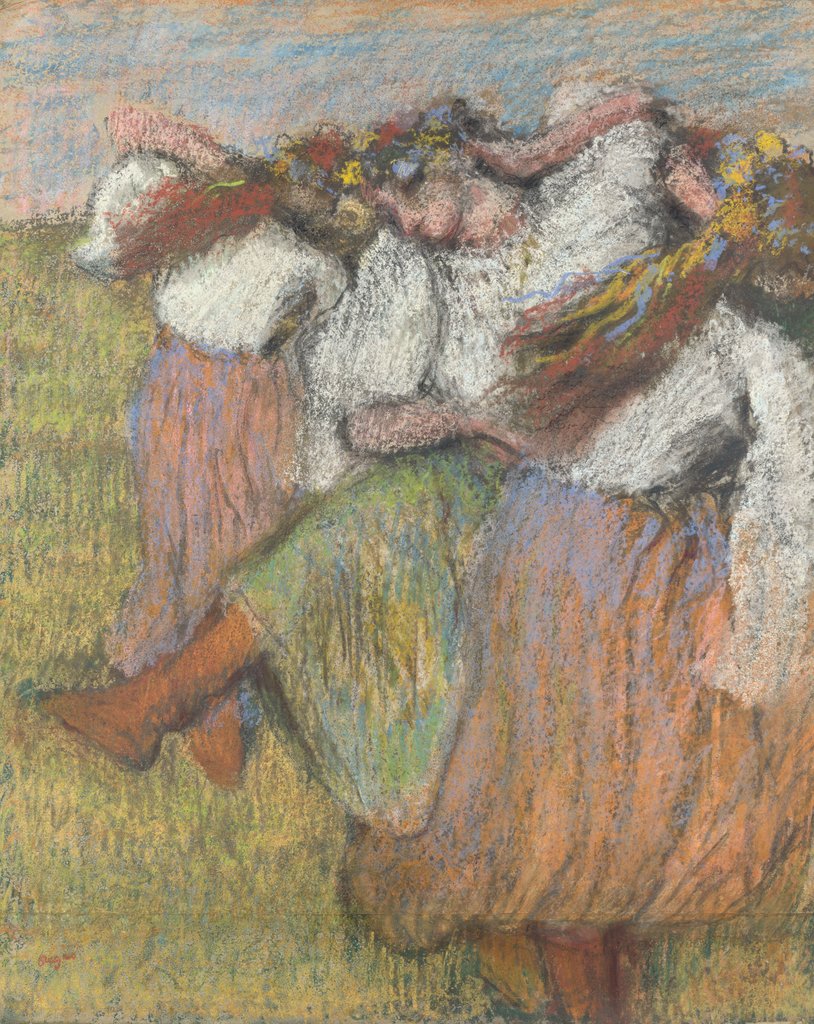
Painting "Ukrainian Dancers" by Edgar Degas. Photo: The National Gallery
This is actually a series of artworks. Presumably, the artist painted it under the impression of dancers who performed in Paris in the colors of the Ukrainian flag. The National Gallery of London eventually renamed the painting "Ukrainian Dancers." The Metropolitan Museum of Art changed the title to “Dancers in Ukrainian Dress”.
International tours, appeals, promotions
Many Ukrainian cultural figures are touring abroad to raise funds for the army and help civilians, to spread information about the war, to consolidate and support refugees, and to engage in cultural diplomacy. The speeches of writer Oksana Zabuzhko (for example, in the European Parliament), writer Serhii Zhadan, filmmaker Iryna Tsilyk, cook and popularizer of Ukrainian cuisine Yevhen Klopotenko, and many others attracted significant international attention.
Reminders of the war and the responsibility of the Russian Federation at international cultural events and activities are effective. These gather a large, influential audience that is not always interested in events in Ukraine. During the full-scale war, President Zelenskyy gave speeches at the Grammy Awards, the Cannes Film Festival, the Glastonbury Music Festival, and the opening of Berlinale 2023. He was not allowed to attend the Oscars (2023), where a film about the mythical Russian opposition and Alexei Navalny won.
A crucial part of this struggle is at the edge of law and culture. This includes lawsuits against the Russian Federation by various groups from the cultural and creative industries. So far, the International Criminal Court has an appeal from Ukraine regarding the destruction of cultural heritage in the occupied Crimea, which was sent before the start of the full-scale war. Obviously, there will be many lawsuits. Russia has already destroyed or damaged more than half a thousand objects of Ukrainian culture and cultural heritage.
In the long term, the main methods of cultural resistance to the Russian Federation are professional international discussions (for example, about Russian imperialism and Russian-Ukrainian relations), the creation of new meanings and discourses, and the increase of Ukrainian presence and visibility in foreign cultural space. Ukrainian cultural community and all of its members in their respective fields are engaged in this task. It requires comprehending the place of Ukrainian culture in the world, our identity and uniqueness, developing and building networks and connections with the international community, constant work, and openness to dialogue. This is a long game.
[1] The Universal Decimal Classification, or UDC, is a system of library classification of documents used worldwide to systematize printed materials.
[2] Eurimages is the co-production and distribution support fund at the Council of Europe. It has been operating since 1989.
[3] International Federation of Film Producers Associations





